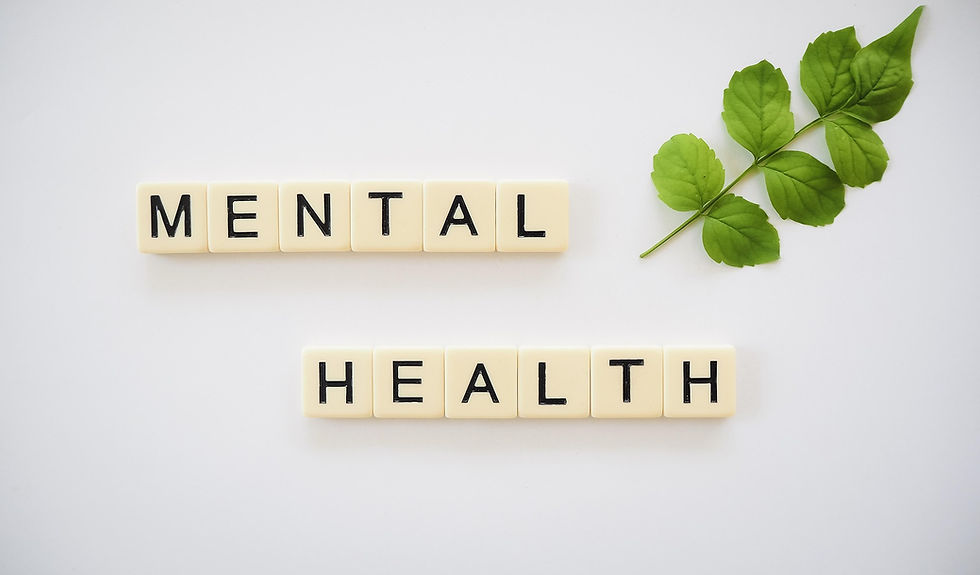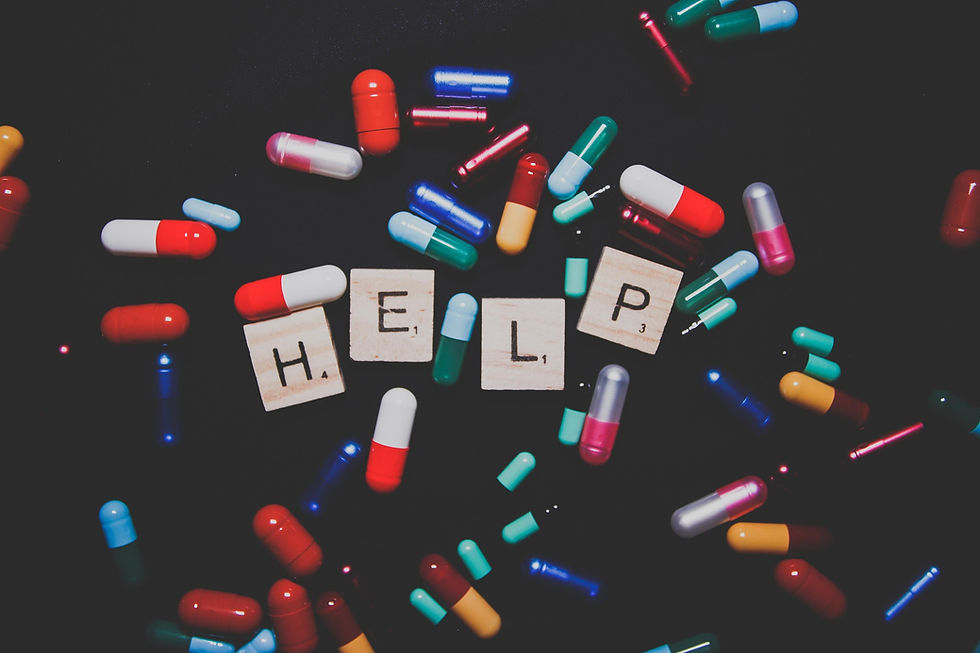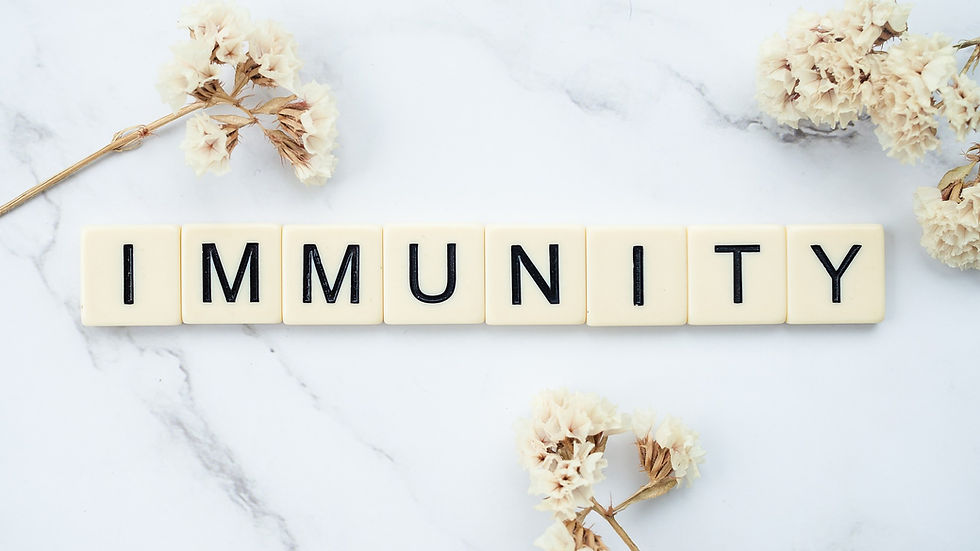Probiotics have done more for me than any antidepressant
- Adriano dos Santos
- Mar 9, 2025
- 4 min read
The connection between your gut and brain is more powerful than you might think. Probiotics are emerging as a groundbreaking approach to mental health, offering hope for those struggling with depression and anxiety.

Table of Contents:
Understanding the Gut-Brain Axis
Reducing Inflammation
Enhancing Neurotransmitter Production
Regulating Stress Responses
Addressing Clinical Populations
Why Probiotics Are a Promising Alternative
Selecting the Right Probiotic for Mental Health
About me
I am Adriano dos Santos, MSc, rNutr, IFMCP, MBOG, RSM, a Functional Registered Nutritionist, Sleep Medicine & Microbiome Researcher and Educator.
Introduction
Depression and anxiety are two of the most common mental health conditions. Major Depressive Disorder (MDD) affects up to 20% of people during their lifetime, often leaving individuals struggling with persistent low mood, lack of interest in activities, and impaired daily functioning (Wallace C.J.K. & Milev R, 2017). While antidepressants are a cornerstone of traditional treatments, they often come with delayed effectiveness, unwanted side effects, and significant stigma, making it difficult for some to find relief (Johnson D., et al, 2021).
In recent years, scientific research has unveiled an exciting alternative: probiotics, live microorganisms that not only improve gut health but also play a vital role in mental health. By interacting with the gut-brain axis, probiotics have demonstrated the potential to alleviate depressive and anxiety symptoms in ways that rival traditional treatments (Yong S.J., et al, 2020).

Understanding the Gut-Brain Axis
The gut-brain axis is a bi-directional communication network linking the gut microbiota to the central nervous system. This system affects mood, cognition, and stress regulation through various pathways, including the nervous system, immune responses, and the production of key neurotransmitters (Wallace C.J.K. & Milev R, 2017). Probiotics influence this axis by modulating gut microbiota, restoring balance to the system, and addressing underlying factors contributing to mental health conditions (Liu R., et al, 2019).
Reducing Inflammation
Chronic inflammation is a well-documented contributor to mental health disorders like depression and anxiety. Elevated levels of inflammatory cytokines such as interleukin-6 (IL-6) and tumor necrosis factor-alpha (TNF-α) are frequently observed in individuals with these conditions (Wallace C.J.K. & Milev R, 2017). Probiotic strains like Lactobacillus reuteri and Bifidobacterium infantis have been shown to decrease these markers, reduce gut permeability ("leaky gut"), and strengthen intestinal barriers, leading to improved systemic inflammation and mental health outcomes (Johnson D., et al, 2021).

Enhancing Neurotransmitter Production
The gut microbiota produces many of the neurotransmitters critical for mood regulation, such as serotonin, dopamine, and gamma-aminobutyric acid (GABA). Probiotic strains like Lactobacillus rhamnosus have been shown to increase serotonin production and positively affect depressive behaviors, mirroring the effects of antidepressants but without their side effects (Yong S.J., et al, 2020).
Regulating Stress Responses
Stress disrupts the hypothalamic-pituitary-adrenal (HPA) axis, increasing cortisol levels and exacerbating depression and anxiety (Liu R., et al, 2019). Probiotics such as Lactobacillus helveticus and Bifidobacterium longum have demonstrated the ability to regulate the HPA axis, reducing cortisol levels and promoting emotional stability (Wallace C.J.K. & Milev R, 2017).
Addressing Clinical Populations
In a comprehensive meta-analysis of 28 trials, probiotics were linked to significant reductions in depressive and anxiety symptoms, particularly in clinical populations with diagnosed depression. These benefits were most notable in trials lasting longer than one month, demonstrating the importance of consistent probiotic use for optimal results (Liu R., et al, 2019).
Why Probiotics Are a Promising Alternative

Low Risk of Side Effects: Unlike antidepressants, probiotics are free from side effects like fatigue, weight gain, and sexual dysfunction, which are common with many medications (Johnson D., et al, 2021).

Accessibility: Probiotics are widely available in foods like yogurt or as over-the-counter supplements, providing a low-cost, stigma-free option for those seeking natural solutions (Yong S.J., et al, 2020).

Holistic Benefits: Beyond improving mental health, probiotics enhance digestion, boost immune function, and improve overall physical health, creating a comprehensive approach to well-being (Liu R., et al, 2019).

Selecting the Right Probiotic for Mental Health
Not all probiotics are equally effective for mental health. Research highlights these strains as particularly beneficial:
Lactobacillus rhamnosus: Known for improving mood and lowering stress by increasing serotonin levels (Yong S.J., et al, 2020).
Bifidobacterium longum: Shown to reduce stress and improve cognitive responses to negative emotions (Wallace C.J.K. & Milev R, 2017).
Lactobacillus helveticus: Reduces cortisol levels and enhances overall emotional stability (Johnson D., et al, 2021).
Experts recommend selecting multi-strain probiotic supplements or fermented foods containing these strains for the best results. Additionally, consistent use over several weeks or months is crucial to experience lasting mental health improvements (Liu R., et al, 2019).
Conclusion
Probiotics are not a cure-all, but they represent a powerful step forward in mental health care. By targeting the gut-brain axis, probiotics offer a natural, safe, and effective way to complement or even replace traditional treatments for depression and anxiety. With minimal side effects, wide availability, and growing scientific backing, probiotics hold the potential to transform mental health care for millions.
For those who haven’t found relief with conventional treatments, probiotics provide an exciting and accessible option worth exploring.
References:
Wallace C.J.K. & Milev R. (2017). The effects of probiotics on depressive symptoms in humans: a systematic review. BioMed Central. doi.org/10.1186/s12991-017-0138-2
Johnson D., Thurairajasingam S., Letchumanan V., Chan KG., Lee LH. (2021). Exploring the Role and Potential of Probiotics in the Field of Mental Health: Major Depressive Disorder. MDPI. doi.org/10.3390/nu13051728
Yong S.J., Tong T., Chew J., Lim W.L. (2020). Antidepressive Mechanisms of Probiotics and Their Therapeutic Potential. Frontiers in Neuroscience. doi: 10.3389/fnins.2019.01361
Liu R., Walsh R.F.L, Sheehan A.E. (2019). Prebiotics and probiotics for depression and anxiety: A systematic review and meta-analysis of controlled clinical trials. PMC. doi: 10.1016/j.neubiorev.2019.03.023




Comments